A common question among homeowners is, “How Long Does a Roof Last in North Carolina?”
It is a valid question. After all, your roof is one of the important parts of your home.
It is responsible for protecting your property from the harsh weather elements.
However, the answer to the question is “it depends.” Several factors play a key role in determining the longevity of a roofing system. These include the type of material, installation quality, the region’s climate, and so on.
In this guide, we explore these factors and provide practical tips for extending your roof’s lifespan in North Carolina.
Factors Influencing Roof Span in North Carolina
Weather Conditions
North Carolina experiences a mix of weather conditions all year round: winter, spring, summer, and fall. However, the climate conditions vary from one area to the next, so the impact on a roofing system will be different.
Coastal Areas (Wilmington, Outer Banks): The salt air and high humidity can accelerate corrosion on metal roofs and rot on wood shakes. The coastal regions are quite vulnerable to hurricanes, with winds exceeding 150 mph.
As a result, many roofing systems get damaged, or their shingles get ripped off. For example, this year, we recorded a wind speed of about 170 mph (First Street).
In coastal areas, you should carefully choose your material. In terms of metal, the best options are aluminum, stainless steel (grade 316), galvanized steel, or zinc.
These options are highly resistant to salt-induced corrosion and are durable. Additionally, we would recommend applying protective coatings like Kynar 500, PVDF, or galvalume coating.
If you want a more premium option with salt-induced corrosion, you can opt for tiles.
Piedmont Region (Charlotte, Raleigh, and Durham): The central region experiences hot summer days, occasional tornadoes, and heavy storms. At times, we notice frequent hail and high winds. If the roofing system is old or not installed properly, it can be severely damaged. In central North Carolina, roofs must have proper attic ventilation to prevent heat-related wear and tear.
For this region, if you are on a budget, you can opt for architectural shingles. If you want an upgrade on that, there’s standing seam metal. Similarly, if you want a more premium option, you can opt for premium metals like copper. Also, tiles offer excellent functionality in this region.
Mountain Areas (Asheville, Boone):
Cold temperatures and heavy snowfall are common in the mountain areas. Since this region is part of the Appalachian Mountains, the climate differs significantly.
In Asheville, the winter low can reach -1.67° Celsius (29°F) (WeatherSpark).
Similarly, in Boone, the winter low can reach up to -4° Celsius (24°F) (WeatherSpark).
The roofing systems in such regions experience extensive stress due to ice dams and snow accumulation. It is crucial to choose a material known for its durability and snow-shedding ability. Options include standing seam, natural or synthetic slate, tiles, architectural shingles, and more.
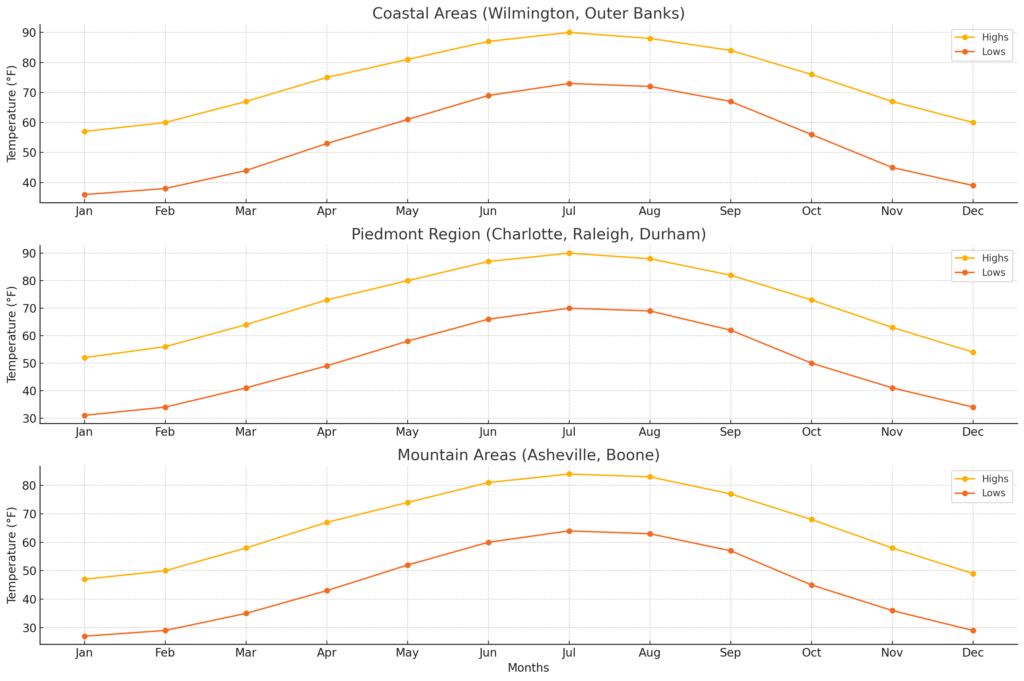
Here’s a graph showcasing the average temperature year round in North Carolina.
Roofing Materials
A quality roofing material is the backbone of your roofing system. In today’s marketplace, the list is extensive. In this list, we curate some of the best materials and state where it’s most suitable.
| Material | Lifespan | Durability Grade | Best Suited Areas |
| 3-tab Asphalt Shingles | 15-20 | Moderate | Inland regions with mild climates, such as Charlotte and Raleigh. |
| Architectural Shingles | 25-30 | High | Versatile enough for all areas, including Piedmont, Durham, and coastal regions, offering reliable storm resistance. |
| Luxury Shingles | 30-50 | High | Perfect for high-end properties in affluent neighborhoods, combining durability with premium aesthetics. |
| Standing Seam Metal | 40-70 | Very High | Engineered for statewide performance, excelling in mountain areas like Asheville with heavy snow and rain, as well as high-wind coastal zones. |
| Corrugated Metal | 20-50 | Moderate | Ideal for rural and agricultural areas across the state, offering cost-effectiveness and practical durability. |
| Steel | 40-70 | High | Designed for coastal areas like Wilmington, providing exceptional wind resistance and protection against corrosion. |
| Aluminium | 40-60 | High | Perfect for coastal regions such as the Outer Banks, where rust resistance against salty air is a priority. |
| Copper | 60-100 | Very High | Tailored for luxury properties in urban hubs like Charlotte and Durham, delivering both style and lasting performance. |
| Natural Slate | 50-100 | Very High | Best suited for affluent regions like Piedmont, where aesthetics and longevity are highly valued. |
| Synthetic Slate | 40-50 | High | A budget-friendly alternative to natural slate, suitable for properties across the state. |
| Wood Shakes | 20-40 | Moderate | Well-suited for inland rural areas, particularly in Piedmont, where aesthetics and insulation are key considerations. |
| Clay Tiles | 50-100 | High | It has a nationwide application but is especially effective in coastal cities like Wilmington, thanks to its heat resistance and durability against salty conditions. |
| Concrete Tiles | 50-100 | Very High | Reliable for Piedmont and coastal areas, offering superior weather resistance and long-term durability. |
| EPDM | 15-25 | Moderate | Perfect for flat urban roofs, commonly seen on commercial buildings in cities like Durham. |
| TPO | 20-30 | Moderate to High | Ideal for urban settings with modern architectural designs, particularly in Piedmont cities such as Raleigh and Greensboro. |
Installation Quality
After choosing a durable material, your roof needs to be properly installed. And, the installation quality will depend on the expertise of the contractor.
If improperly installed, even the best materials will fail prematurely. As a homeowner or businessperson, it is crucial to select a well-reputed contractor.
In North Carolina, these are some common issues of improper installation. It includes:
- Incorrectly nail shingles that blow off in strong winds.
- Poor ventilation accelerates moisture buildup and structural rot.
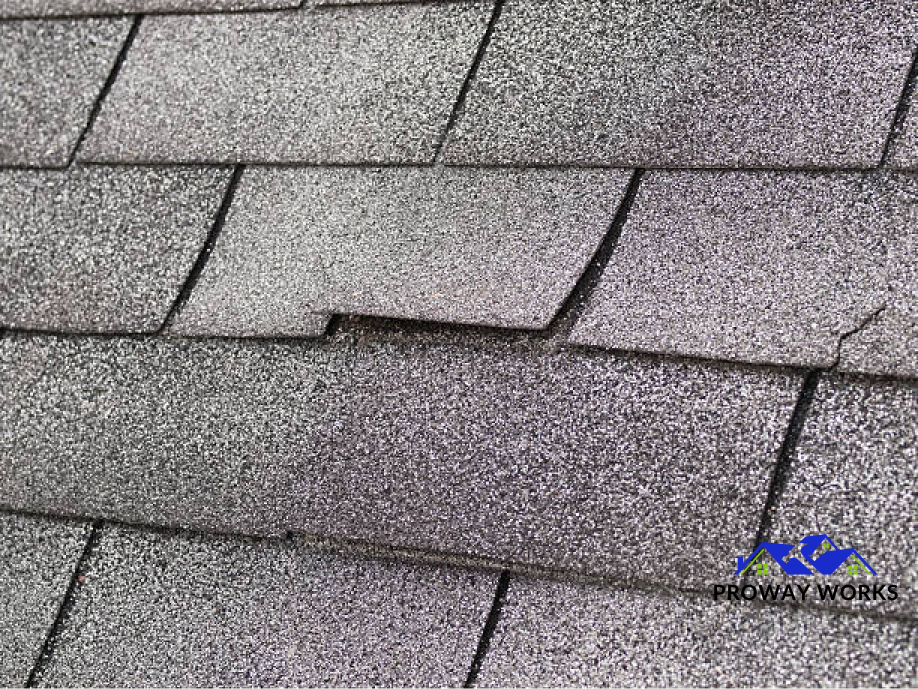
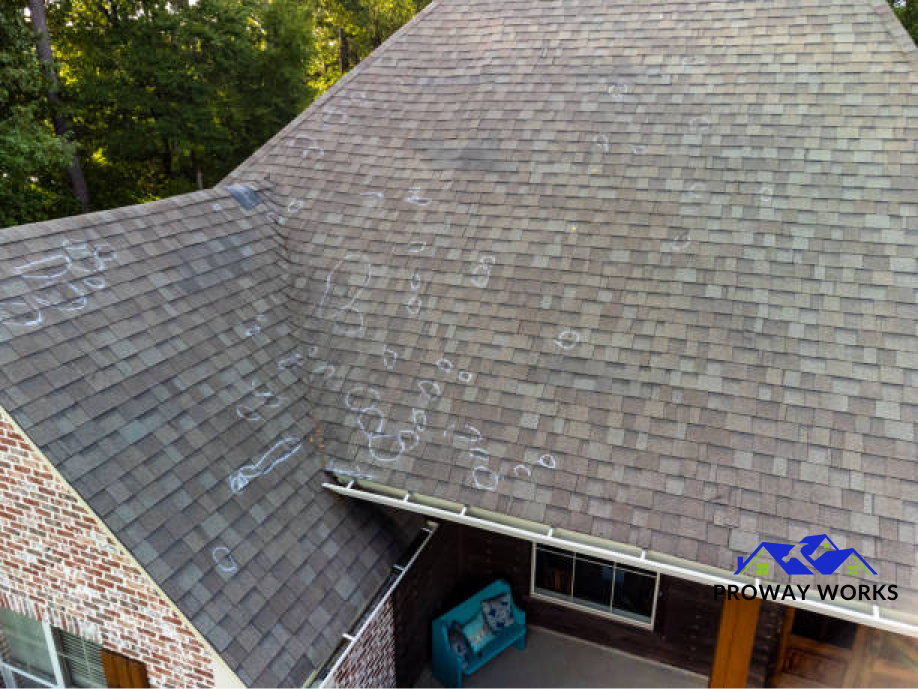
Perfect examples of improper installation.
Maintenance and Repair
At Proway Works, we have noticed a common misconception among our clients. It is that “once a roof is installed, there is no need for maintenance.”
Yes, it is true that for premium materials like metal, tiles, or slates, very little maintenance is required in comparison to asphalt shingles or corrugated metal. But the key is still to follow a proper maintenance check annually.
It is more important to inspect any harsh weather conditions. A check can help you understand the current state of your roofing system.
Sometimes, we notice missing or damaged shingles. If not repaired, this can lead to severe water leakage or damage in the future. Also, at times, the gutters, vents, and chimneys can get blocked.
The key is prevention. If not taken care of on time, it can result in costly repairs.
Tips to Extend the Lifespan of Your Roof
Proper Ventilation and Insulation
Proper ventilation is a crucial part of a complete roofing system. It is crucial during the summer months. As stated earlier, it prevents moisture buildup and minimizes temperature fluctuations that can damage roofing materials.
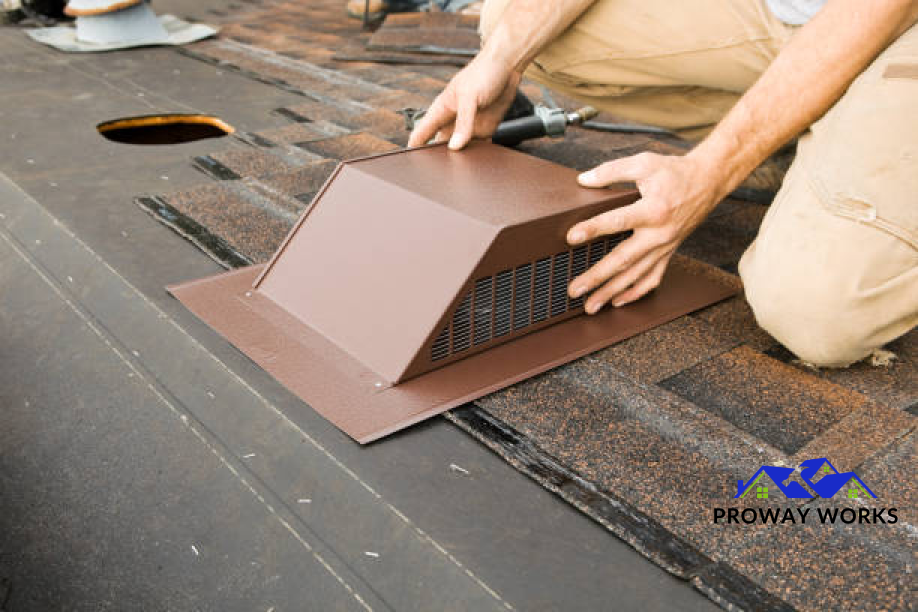

Proper Drainage with Clean Gutters
As stated earlier, heavy rainfall and storms are common in North Carolina. Proper roof drainage is crucial to prevent water-related damage. Clogged gutters or drainage can cause water to pool on your roof, leading to mold growth or even structural damage over time.
At the same time, we recommend trimming any large tree branches. In many cases, we have seen branches fall on the roofing system, causing massive damage.
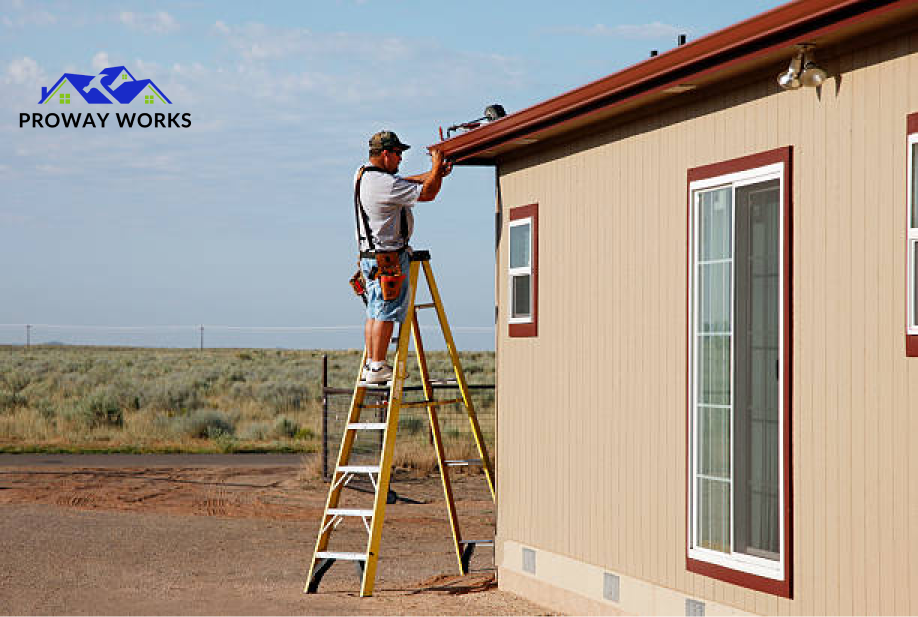

Get Professional Service
For your roofing system, always consult an experienced contractor. It may require a decent investment, but it pays off in the long term.
In North Carolina, a roofer must be licensed and insured. At the same time, look for additional industry certifications. These include CertainTeed Master Shingle Applicators, the National Roofing Contractors Association (NRCA), and others.
Conclusion: Choose Proway Works
If you are looking for a roofing contractor in the Piedmont Region, contact us. We’ve been operating in this region for the past thirty years and have delivered more than ten thousand solid roofing systems to our clients.
We are trained and certified by industry-leading companies like GAF, Owens Corning, CertainTeed, and many more.
At Proway Works, we understand building a roof is an important decision for your property. Our goal is to deliver you a solid roofing system that will last for decades.

Pingback: The Benefits and Drawbacks of Slate Roofing in Durham, NC | Proway Works